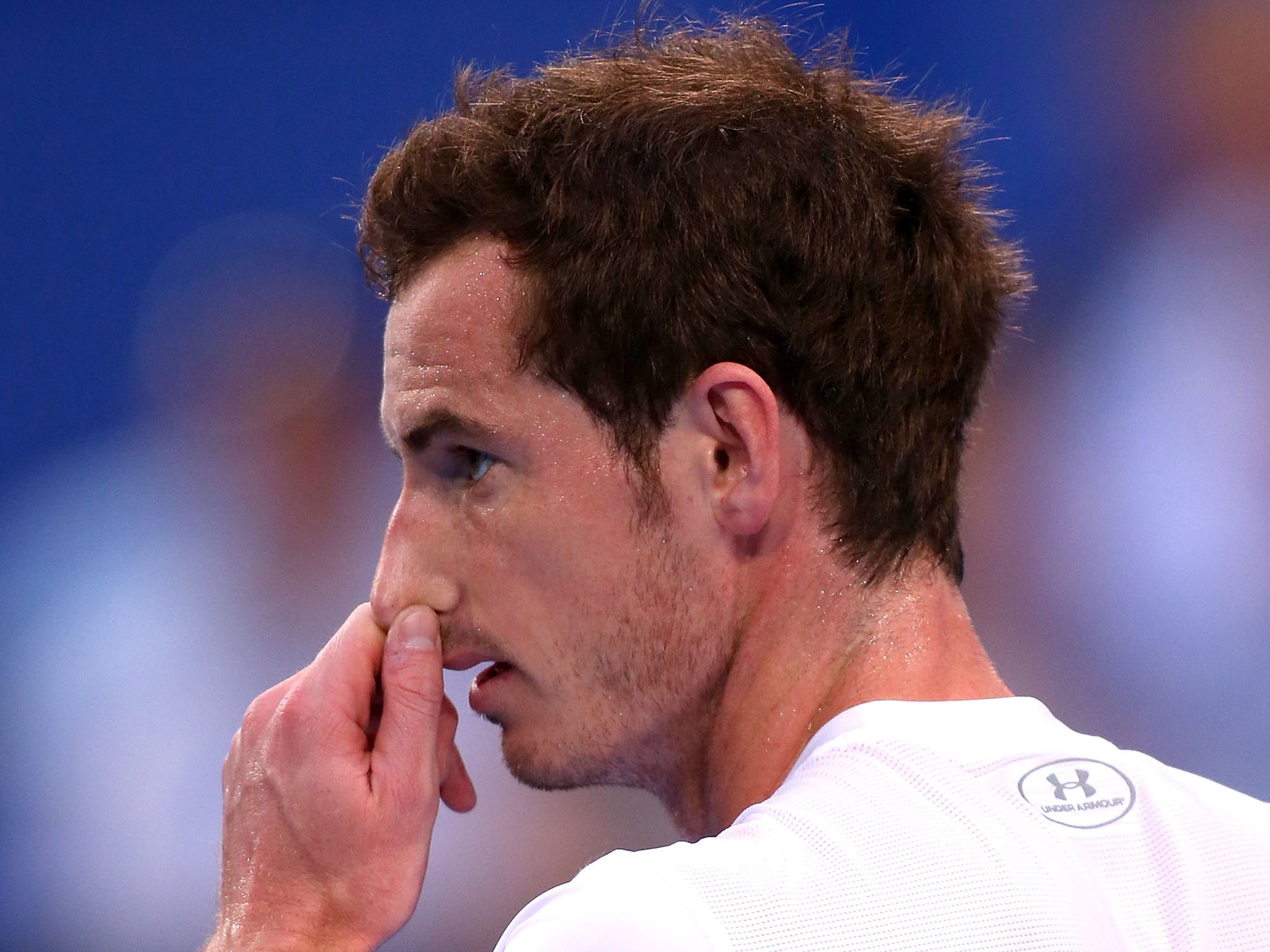Tinker as he may, it's Andy Murray, not the team, who will win or lose heading into the Australian Open
The Scot is preparing for the Australian Open

So Dani and Jez are no more. You wonder how long Amélie will be laying down co-ordinates for the good ship Murray before further change is sought.
Our most accomplished tennis player, arguably the most talented British male to have hit a tennis ball, is 27 years old, bang in the middle of his peak physical years. At this stage of the game talent and experience, mind and body, tend to coincide in a blaze of optimised plunder.
In other words, this is his time, the moment when it all comes together, the period when he stares down Roger, Rafa and Novak and they blink first.
You hope the changes rung in the support cast are pursuant to this point, that they express the inner confidence and belief of an athlete making positive moves, necessary adjustments that will yield the results in the matches that matter.
The first Grand Slam of the year is almost upon us. Murray has contested three finals at Melbourne Park and each time fallen short. If there were ever a moment to grasp the nettle this would be it. Come on, Andy, let them know you are there!
In the backroom comings and goings of Team Murray I’m reminded of changes made in the Mike Tyson camp as the “baddest man on the planet” sought to rediscover the supernova that blew them all away en route to becoming the youngest heavyweight champion in the world.
They would all make the same noises, respected figures all of whom had had success with others. Don Turner, Evander Holyfield’s former trainer, delivered a middle period Tyson in fantastic shape, who was, he said, sparking all and sundry in sparring, a fearsome sight.
It all sounded so convincing until the first bell sounded, revealing a fighter who lacked not so much the talent or technique but the mental wherewithal to carry on the battle. What Tyson needed to have any hope of resurrecting the warrior construct of old was a trainer capable of confronting that issue, but that would have involved telling the boss, one of the most powerful figures in the business, truths he didn’t want to hear.
Subconsciously Tyson was appointing men who would do his bidding, technical maestros who knew the game but would never challenge his authority or make his pips squeak. The last word was Tyson’s, not theirs.
There were victories but ultimately the result was a succession of good men bringing Tyson to a pretty peak in the training environment but without any hope of succeeding under the gun of genuine combat.
You hope that Murray is not falling into the same trap in seeking perfect order in the support cast when the real issue is within. Unless Murray can flick that inner switch and respond when Federer’s backhand has him pinned, or Nadal is whipping those forehands across court, then the project is doomed.
You might argue that Federer, in the appointment of Stefan Edberg, and Djokovic in the hiring of Boris Becker, are engaged in exactly the same process, but in neither case is there any doubt about the ability to rise to an occasion in defining moments. They have walked through the fire many times to achieve astonishing victories. They really are refining, not searching.
There has always been a reticence about Murray that for the most part he has been unable to shake off. This is reflected not only in his reluctant monotone off court but in the defensive sequences that claim him when faced with the big tests.
You sense there is a huge personality in there, one that is doubtless revealed to close family and friends, but is too often shackled by inhibition when the curtain rises.
The one period in his career when he appeared to have command of the zeitgeist was with Ivan Lendl at his side, a man who arrived and left on his own terms. As Lendl’s painful departure demonstrated, here was a champion who was prepared to say ‘no’ to the boss.
This was a power relation that clearly worked for Murray because Lendl had his respect, and his trust. Murray deferred to a man who had stood where he stood and prevailed. Thus when he sought him out in the stands during moments of trouble, Murray drew strength from the inscrutable face behind the dark glasses.
“You can do this,” was the message, and he did, producing the most significant results of his career, Olympic gold and two Grand Slams.
Murray has the tools to win any match. He just needs to convince himself of that, to recognise that Murray maketh the man, not the staff.
The world is turning. The next tranche of great players is emerging. Grigor Dimitrov and Milos Raonic will, you imagine, be taking lumps out of each other and the field as the decade evolves. Dimitrov has already struck a blow, eviscerating Murray at Wimbledon.
Murray has time to strike back, but the future won’t be his forever.
Subscribe to Independent Premium to bookmark this article
Want to bookmark your favourite articles and stories to read or reference later? Start your Independent Premium subscription today.

Join our commenting forum
Join thought-provoking conversations, follow other Independent readers and see their replies